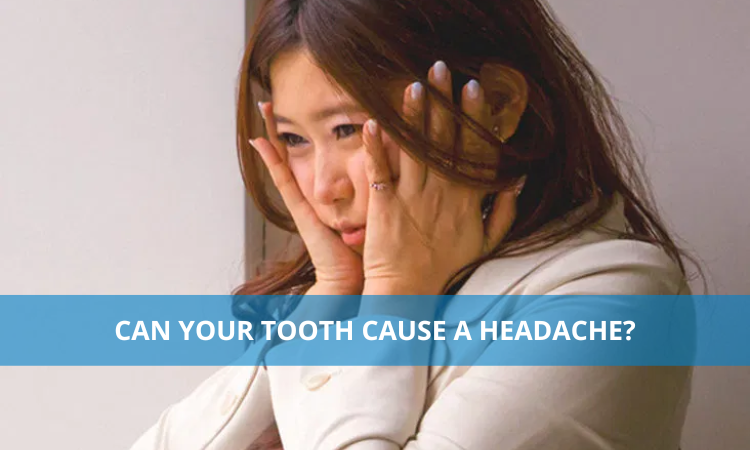
Find out how a tooth can cause headaches like trigeminal neuralgia, cluster headaches, sinus headaches, migraines, and tension headaches. Why it's crucial to visit a dentist if you're suffering from dental pain and headaches.
Headaches are a frequent sickness that can be caused by a number of causes such as stress, a lack of sleep, and certain medical disorders. Many individuals might not understand, though, that a toothache can also be the root of a headache. This article will investigate the numerous ways in which a tooth can induce a headache and explain the connection between dental discomfort and headaches.
Tooth Pain and Migraines
Migraines are one of the most frequent ways that a tooth can induce a headache. A type of headache known as a migraine is characterised by a sharp, pulsating pain that is frequently accompanied by additional signs and symptoms like nausea, vomiting, and sensitivity to light and sound. According to studies, some people can have migraines as a result of tooth discomfort, particularly if they have an abscess or an infected tooth. This is because the trigeminal nerve, a key pain pathway in the head and face, can be stimulated by dental pain.
Tooth Pain and Tension Headaches
Tension headaches are another way that a tooth can give you a headache. The hallmark of tension headaches is a dull, agonising pain that is frequently compared to a tight band around the head. By causing the muscles in the jaw, neck, and head to tense up, tooth pain, especially from an abscessed or infected tooth, can lead to tension headaches. Pain and discomfort in the head and face may result from this muscle stress.
Tooth Pain and Sinus Headaches
Sinus headaches, which are characterised by pain and pressure in the face, particularly in the area around the eyes, cheeks, and forehead, can also be brought on by tooth discomfort. Inflammation or infection in the teeth can irritate the sinus lining and result in sinus headaches since the roots of the upper teeth are situated near to the sinus cavities.
Tooth Pain and Cluster Headaches
Cluster headaches, which are characterised by severe, recurrent headaches that frequently happen in clusters or cycles, can also be brought on by tooth discomfort. Although it is less common than other headache types, this one can be brought on by dental problems such an infection or inflammation in the tooth or jaw. These headaches typically affect one side of the head, frequently near the eye, and can also cause other symptoms including eye redness, oedema, and tearing.
Tooth Pain and Trigeminal Neuralgia
Trigeminal neuralgia, a chronic pain disorder that affects the trigeminal nerve, which is responsible for sensation in the face, can also be caused by tooth pain. This condition is characterised by abrupt, intense pain that feels like an electric shock and can be brought on by routine daily activities like talking, eating, or brushing your teeth.
To sum up, tooth pain can result in headaches in a number of different ways, including migraines, tension headaches, sinus headaches, cluster headaches, and trigeminal neuralgia. To find the source of your discomfort and receive the proper care, it's critical to schedule an appointment with a dentist as soon as you start suffering tooth pain and headaches. Avoid letting dental pain impair your quality of life by visiting a dentist and receiving the care you require.


